Udantai Sitanadi Tiger Reserve, Chattisgarh, July 12, 2019 : The state of Chhattisgarh accounts for more than 42% of the forest cover in our country. However, it is being highly threatened by habitat degradation from a variety of anthropogenic pressures. Udanti Sitanadi Tiger Reserve (USTR) has rich forest cover and serves an ideal habitat for central Indian wild buffalo which is also the state animal of Chhattisgarh.
The Udanti Wildlife Sanctuary is dotted by 17 small villages inside the sanctuary. Most of these villages are agricultural households but also depend on forest resources for their daily needs. This has been among the prime reason, why the wild buffalo population is gradually decreasing and threatened to extinction today. To this end, Wildlife Trust of India has been working with the State Forest Department to initiate a variety of measures to minimize the risks.
WTI has been taking various steps to discourage villagers who are highly dependent on forests, located within wild buffalo home ranges. This includes installation of improved cook stoves across village households (reducing the timber usage/collection to half), engaging trackers from local communities, awareness among the frontline field staff & villagers and more.
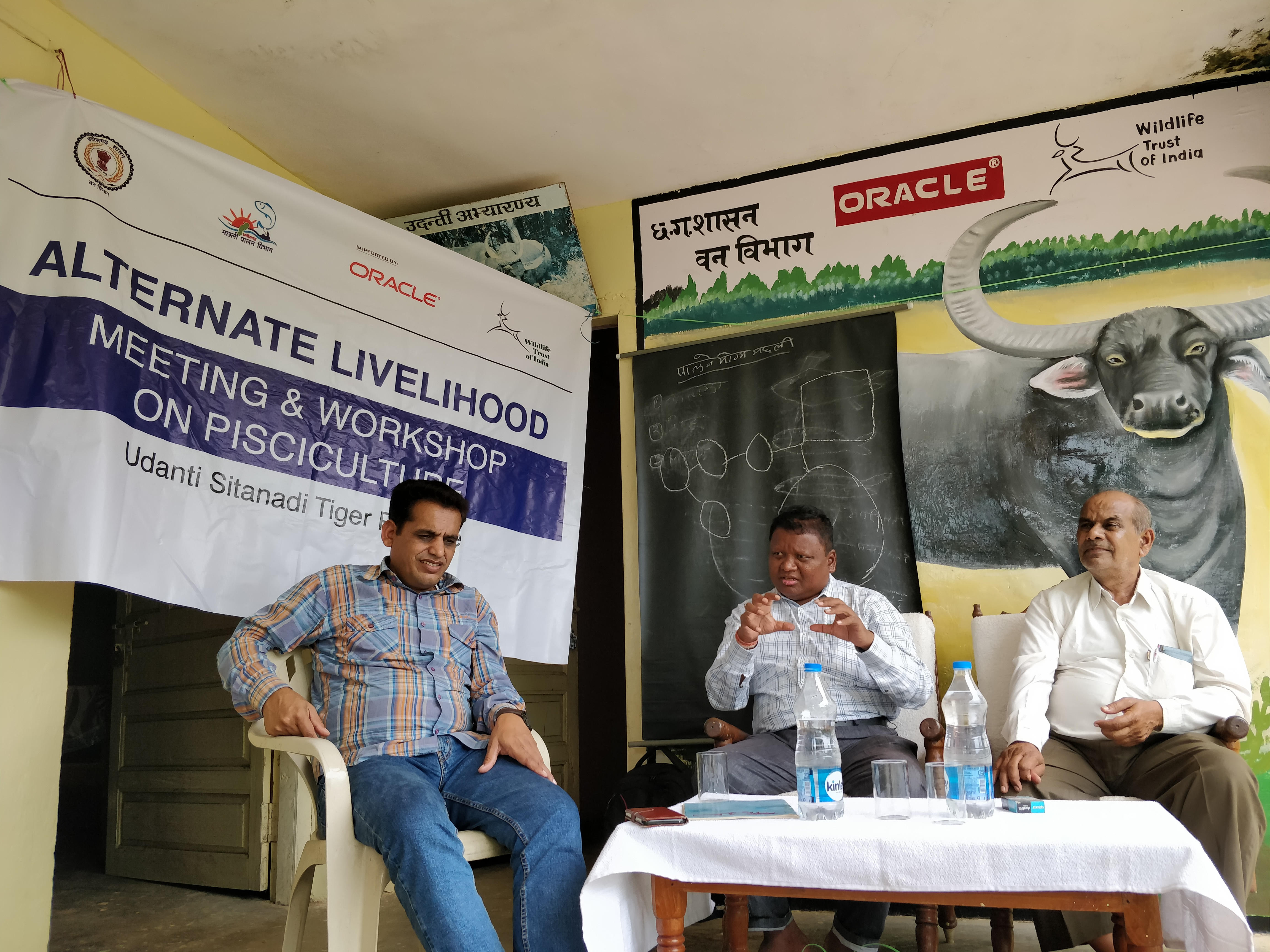
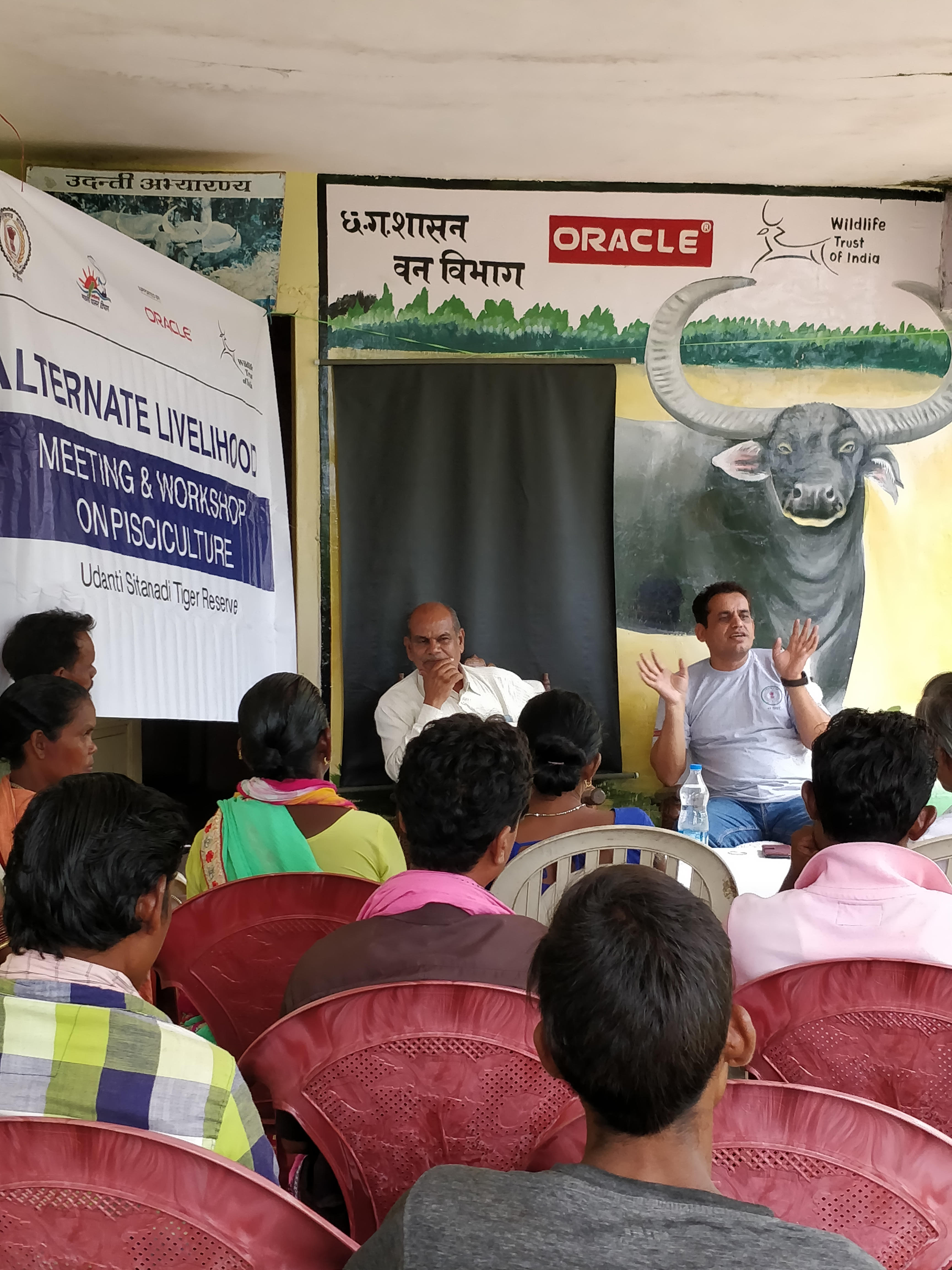
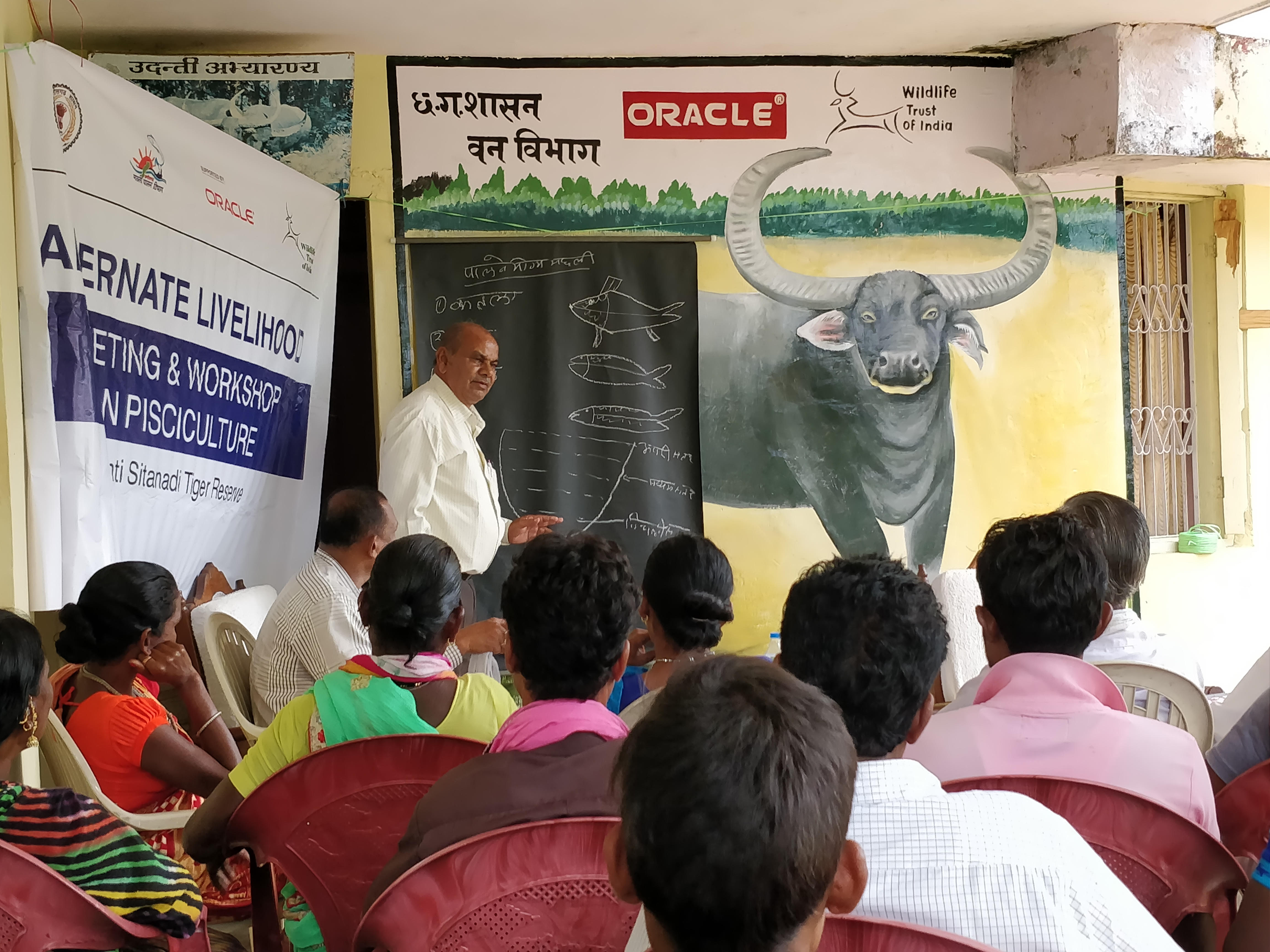
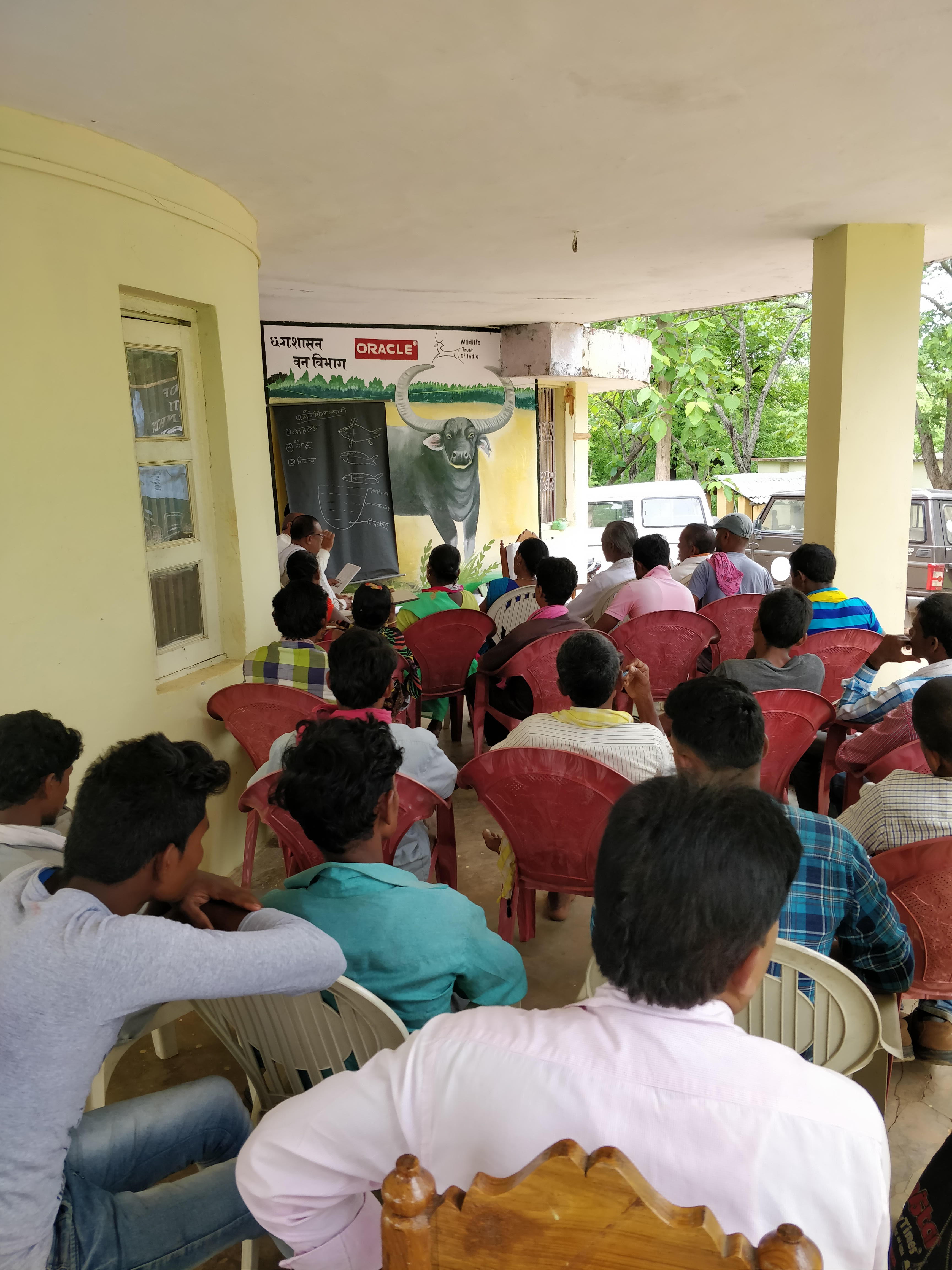
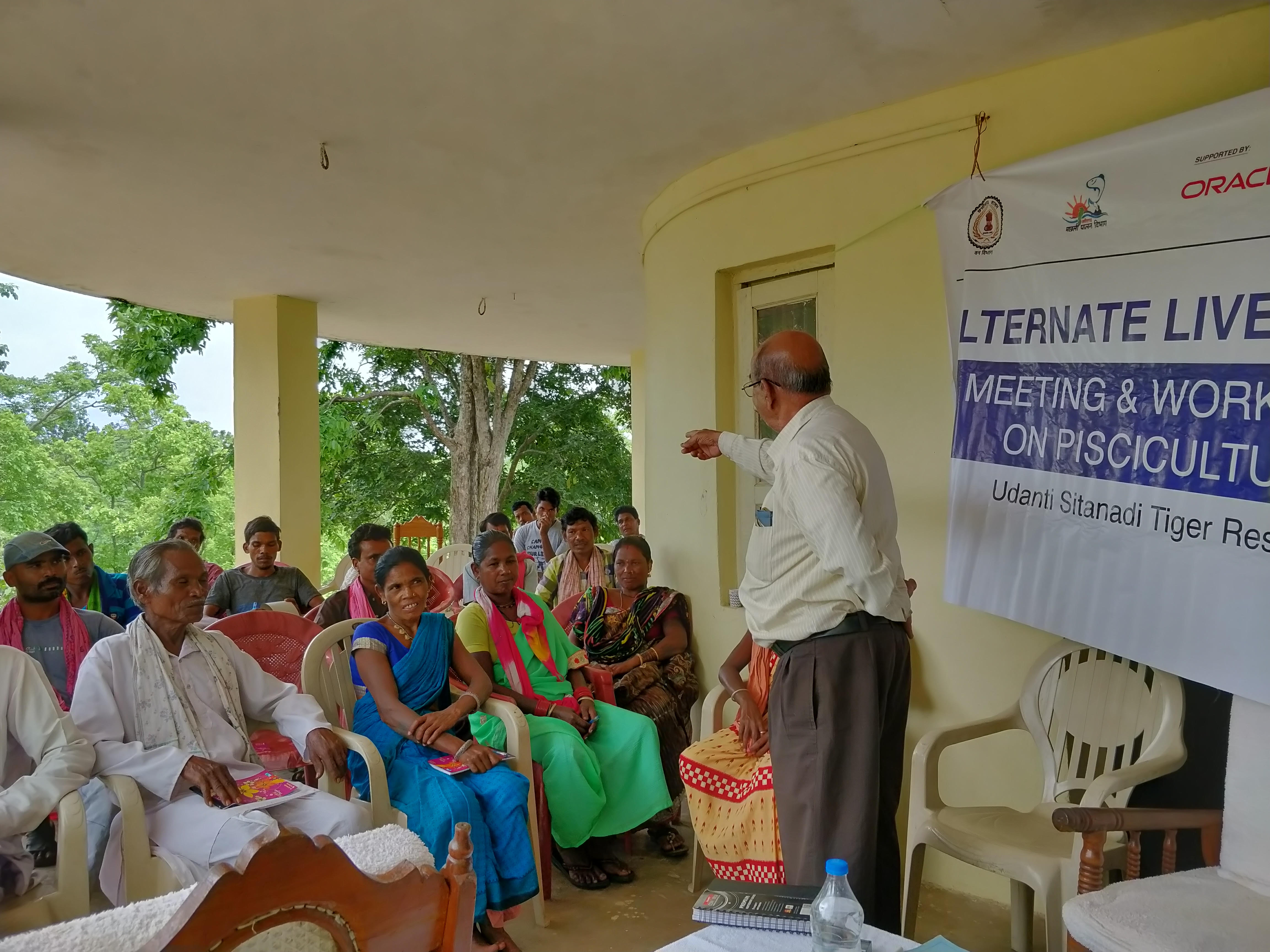
In the most recent steps towards the same, pisciculture training was organized for 30 villagers from two villages in USTR, viz, Jugaad and Deojhar Amli. The villagers were taught about the best practices for maximum production and profitability by representatives of the State Fishery Department. WTI had identified the two villages based on several factors including population, availability of ponds and proximity of Wild Buffalo Habitat among others. The ponds selected will give an extra income to the villagers through an established committee for the same reason. Not only that, but the pisciculture will keep the villagers engaged during non-crop seasons to lower their dependence on the forest.
WTI has collaborated with the State Fishery Department to carry out the initiatives. The seed fund for the same is being provided by WTI while the Fishery Department has promised training of villagers and concession on raw materials (including fish seeds). The villagers on the other hand had promised full responsibility of the labour involved in the process and fair distribution of profit for a long-term scale.
The two-day workshop was conducted at Jugaad forest rest house in Udanti WLS. Apart from the villagers, the beat guards of the respective villages and WTI representatives were present in the event. The event was chaired by Mr R.N. Sori, Assistant Director, USTR. We estimate that each of the two villages will attain a profitability of about 2.5 Lakhs at the end of the season. According to Mr. Sori, “This is a very good initiative taken by WTI towards conservation of the wild buffalo habitat in USTR. Engaging villagers in non-forest activities is probably the only solution to curb their high dependence on natural resources, while giving the forest, the required time to regenerate.”